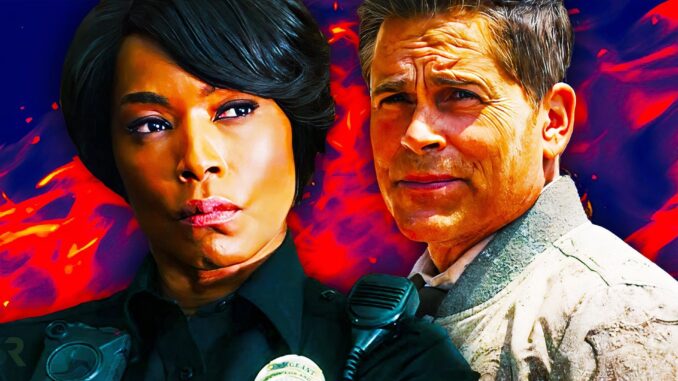
Introduction: A Finale Overshadowed
When you think of gripping television finales, you imagine suspense, emotion, and a lasting impact. 9-1-1: Lone Star delivered on all fronts during its final tragedy, but its moment of glory was sadly snatched away by its sister series, 9-1-1. What went wrong? How could a show so carefully crafted falter when it mattered most?
In this article, we’ll unpack how 9-1-1’s presence undermined Lone Star’s intense finale, delving into storytelling clashes, audience dynamics, and whether the two shows can coexist without stepping on each other’s toes.
What Made Lone Star’s Finale So Emotional?
H1: A Finale Built on High Stakes
Lone Star crafted a finale filled with emotional gut-punches, life-and-death scenarios, and character-defining moments. It wasn’t just another episode; it was a crescendo that had been building for the entire season.
H2: The Heart of the Story—Loss and Resilience
The finale’s tragedy centered on themes of loss and resilience. When key characters faced heartbreaking losses, viewers were pulled into their struggles, making it almost impossible not to feel the weight of every decision.
H3: Fan Favorites in the Spotlight
Characters like Captain Owen Strand were at their most vulnerable. His leadership, often a source of strength, was tested in ways we hadn’t seen before, adding depth to his arc.
How 9-1-1 Stole the Spotlight
H1: Competing Drama on the Same Network
The biggest misstep? Airing two major finales so close together. Both Lone Star and 9-1-1 operate within the same universe but telling different stories. However, 9-1-1’s louder, action-packed plotlines often overshadowed Lone Star’s quieter, more emotional beats.

H2: A Scheduling Nightmare
Fox’s decision to air both finales within a short timeframe created a scheduling clash. Instead of complementing each other, the shows ended up competing for attention, and 9-1-1’s sheer intensity pulled viewers away from Lone Star’s subtle storytelling.
H3: Audience Fatigue from Similar Themes
Both series tackle emergencies and high-stakes situations, but back-to-back finales made the audience feel oversaturated. The emotional impact of Lone Star was dulled as viewers had just experienced similar tension in 9-1-1.
Why Lone Star’s Finale Deserved Better
H1: A Unique Approach to Tragedy
While 9-1-1 relies heavily on over-the-top emergencies, Lone Star focuses on character-driven stories. This subtlety is what makes its tragedies hit harder, but it also requires space to breathe—a luxury it didn’t get.
H2: Stellar Performances That Shined
The cast of Lone Star delivered career-best performances. Their ability to convey raw emotion elevated the finale, but these moments were lost in the noise created by 9-1-1.
H3: A Missed Opportunity for Cross-Promotion
Instead of competing, Fox could have used 9-1-1 to build anticipation for Lone Star. A coordinated effort could’ve maximized impact for both finales.
The Future of Lone Star and 9-1-1
H1: Can Both Shows Coexist?
With similar premises and overlapping audiences, the two shows must find a way to support rather than overshadow each other.
H2: Lessons from This Finale Clash
Fox should rethink its strategy. Staggering major episodes or weaving crossovers more strategically can prevent future missteps.
H3: Keeping Lone Star’s Legacy Alive
Lone Star has proven its ability to tell deeply human stories. Moving forward, it needs to carve out its own space without 9-1-1 looming in the background.
Conclusion: A Lesson in Balance
Lone Star’s finale deserved its moment in the spotlight, but 9-1-1 unintentionally stole the thunder. This clash of dramas highlights the challenges of managing interconnected series. With careful planning, both shows can thrive, delivering the unique experiences that fans love.
FAQs
1. Why did 9-1-1 overshadow Lone Star’s finale?
The intense scheduling and similar themes made it difficult for Lone Star to stand out, with 9-1-1’s dramatic plotlines dominating audience attention.
2. Are Lone Star and 9-1-1 part of the same universe?
Yes, both shows are set in the same universe and occasionally feature crossovers, but they focus on different teams and storylines.
3. What could Fox have done differently?
Fox could have staggered the finales or coordinated a crossover event to build momentum for both shows instead of pitting them against each other.
4. Will Lone Star recover from this misstep?
Absolutely! With its strong storytelling and dedicated fanbase, Lone Star has the potential to bounce back stronger than ever.
5. What makes Lone Star unique compared to 9-1-1?
Lone Star leans into character-driven narratives and emotional depth, while 9-1-1 focuses on high-energy, action-packed emergencies.